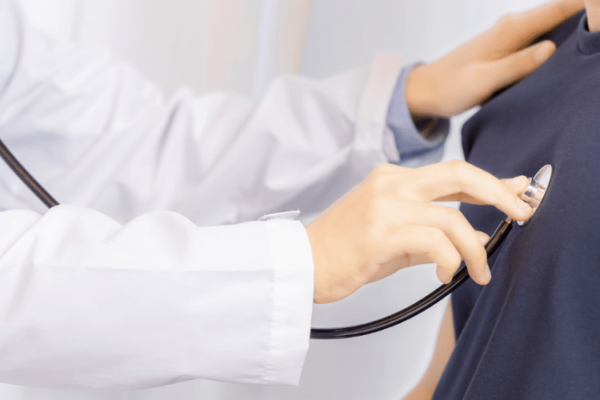
29 Oct Recognise the 14 Signs of Early Pregnancy
Recognise the 14 Signs of Early Pregnancy
By Island Hospital | Oct 29, 2020 6:34:09 PM
Some women will notice the signs within the first few weeks of their pregnancy in the first trimester, while others may experience it much later.
Not all women will have the exact same signs as you do as it can vary in terms of quality and severity. Furthermore, not all women will necessarily have those same signs during the next pregnancy. The main reason as to why many women do not realise that they are pregnant is because it is often rather similar to the symptoms that come before and during menstruation.
It must be noted that the following list is just a description of several common signs that occur during an early pregnancy and is not a definite confirmation that you are truly pregnant as there are other factors which may cause these signs as well. The only way to be 100% certain is by taking a pregnancy test.
Here are the 14 signs of an early pregnancy that you may experience:
- Spotting and cramping After the conception stage, the fertilised egg will attach itself to the uterus’ wall and this will cause implantation bleeding – one of the earliest sign of a pregnancy and this can occur from 6 to 12 days after the egg’s fertilisation. Sometimes, you will experience a form of cramping similar to menstrual cramps, leading you to be unaware of your own pregnancy.
- Vaginal discharge Aside from bleeding, you may have a white, milky-like discharge from the vagina due to the thickening of the vaginal walls, which begins almost immediately after conception. It will continue throughout the pregnancy and is harmless. However, if you begin to notice a foul stench or a burning and itchy sensation, check with your doctor to see whether there is a bacterial or yeast infection.
- Breast changes When conception has taken place, hormonal levels will sharply increase in your body and the first part to feel its effects will be the breasts. Your breasts will usually feel sore, swollen, heavier or tingly to the touch a week or two later. You may also notice that the area around your nipples, known as the areola, becoming darker. It will take several weeks for your body to get used to the new hormonal levels.
- Fatigue During the first four months of your pregnancy, you will most likely feel extremely tired or sluggish for no apparent reason. This is due to heightened levels of progesterone and lower levels of blood sugar and blood pressure. One way to combat this would be to get plenty of rest and eat foods rich in protein and iron.
- Nausea (morning sickness) Despite its name, feelings of nausea can occur at any time of the day. While some women may not have morning sickness at all, others may be overwhelmed with severe bouts of nausea. During this period of time, you may also have strong cravings or repulsion towards certain foods thanks to hormonal changes.
- Increased urination This can happen from as early as two weeks after conception as your kidneys is slowly gearing itself up to filter the extra waste in your blood produced by the baby forming inside you. Other factors behind this include increased pressure on your bladder by your expanding uterus and increased levels of progesterone. However, if you find yourself having a burning sensation while urinating, check with your doctor to ensure whether it is a urinary tract infection (UTI) or not.
- Dizziness or lightheadedness This is most likely due to hormonal changes which, in turn, affect blood pressure and blood sugar levels.
- Constipation When you are pregnant, your body will produce more progesterone than usual, which can make you constipated. This is because progesterone causes food to pass slowly through your intestines. To ease the problem, you should drink more water, consume lots of high-fibre foods and cultivate the habit of exercising.
- Heightened sense of smell An increase of estrogen in your system can result in higher sensitivities to certain smells, which have the potential to induce feelings of nausea.
- Headaches and lower back pain You can expect to have a few instances of headaches and pain at your lower back throughout your pregnancy due to changing hormone levels.
- Mood swings If you find yourself in a raging fit one second and crying your eyes out the next, do not be alarmed as this is part and parcel of the pregnancy process. Again, this is due to significant changes in your hormonal levels, particularly estrogen and progesterone. These changes will also affect your level of neurotransmitters – chemicals in the brain that are responsible for regulating moods. Mood swings typically occur during the first trimester between 6 to 10 weeks.
- Shortness of breath While this is more common during the later stages of a pregnancy, you may notice yourself finding it hard to breathe in the first few weeks of conceiving as your body is in demand for more oxygen in order to sustain the fetus’ growth.
- A change in basal body temperature (BBT) Basal body temperature (BBT) refers to your temperature when you are fully rested and it is usually measured first thing in the morning. If you have been keeping track for some time, you will notice a rise in BBT levels for 18 days following ovulation, signaling that most likely you are having an early pregnancy.
- Chest pains When you are pregnant, your rib cage undergoes a slight growth, where it begins to expand and creates muscular tension in the chest. Your breasts also contribute to chest pains as it will become bigger and will strain surrounding joints and muscles. These conditions only result in mild pain so there is nothing to be too concerned about. However, if the pain becomes unbearable and prevents you from doing your daily routines, seek medical attention immediately.
As stated previously, the signs and symptoms are different for every woman and it is rather similar to those related to premenstrual syndrome (PMS), thus making it rather impossible to rely on these signs alone to determine whether you are truly pregnant. While a home pregnancy test can help in the process, there may be times where it produces a false-positive result. Therefore, the best method is to pay a visit to the doctor’s clinic for a urine or blood test.
Should you have any doubts about your pregnancy and its signs, consult our doctors to get more accurate information and learn about your condition.







